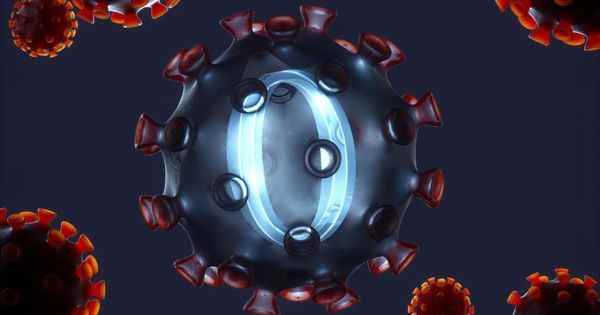Published ,
Reading 2 mins.
According to Japanese scientists, the Omicron variant would be able to survive longer on the skin and on plastic than the previous variants of Covid-19 and that it would also be more resistant to hydroalcoholic gels. Two properties that would explain its very strong and very rapid global spread.
The high contagiousness of the Omicron variant lies in the fact that it lodges mainly in the upper and not the lower airways, like the previous variants of the Covid-19 virus. Another specificity is raised by Japanese researchers from the Kyoto Prefectural University. In a study that has yet to be validated by their peers, they scrutinized the survival time of each of the viruses on different surfaces.
Greater environmental stability that promotes the spread of Omicron
Several factors may contribute to explaining the very high infectiousness and transmissibility of SARS-CoV-2, among which an increase in the viral load excreted by infected persons, a period of prolonged viral excretion, a reduction in the minimum viral load for establish infection and increased environmental stability, i.e. its ability to stay active longer on different surfaces.
But until now, no study had compared the stability of the initial virus and its Omicron variant.
Stronger on skin and plastic
The results are surprising to say the least. The variants were all inactivated after 15 seconds of exposure to hydroalcoholic gel, but the Omicron virus was more resistant than the others.
According to the researchers, the Omicron virus samples remained alive on the plastic for more than 8 days (193.5 hours precisely). For the previous variant, the Delta, it was 114 hours. The original strain of the virus resists “only” 56 hours.
On human skin, Omicron survived 21 hours compared to 16.8 for Delta and 8.6 hours for the original virus.
Consult a GP online
The reasons for its greater environmental stability remain to be elucidated.
“Our study showed that on plastic and skin surfaces, the Alpha, Beta, Delta, and Omicron variants exhibited survival times more than twice as long as those of the Wuhan strain and maintained infectivity for more than 16 h on skin surfaces” explain the scientists, who believe that their work has allowed “to elucidate the environmental stability of COV-like viruses, an important piece of information for infection control”.
However, this study does not explain the reasons for Omicron’s greater environmental stability. Further work will be needed to identify the factors underlying this property.
